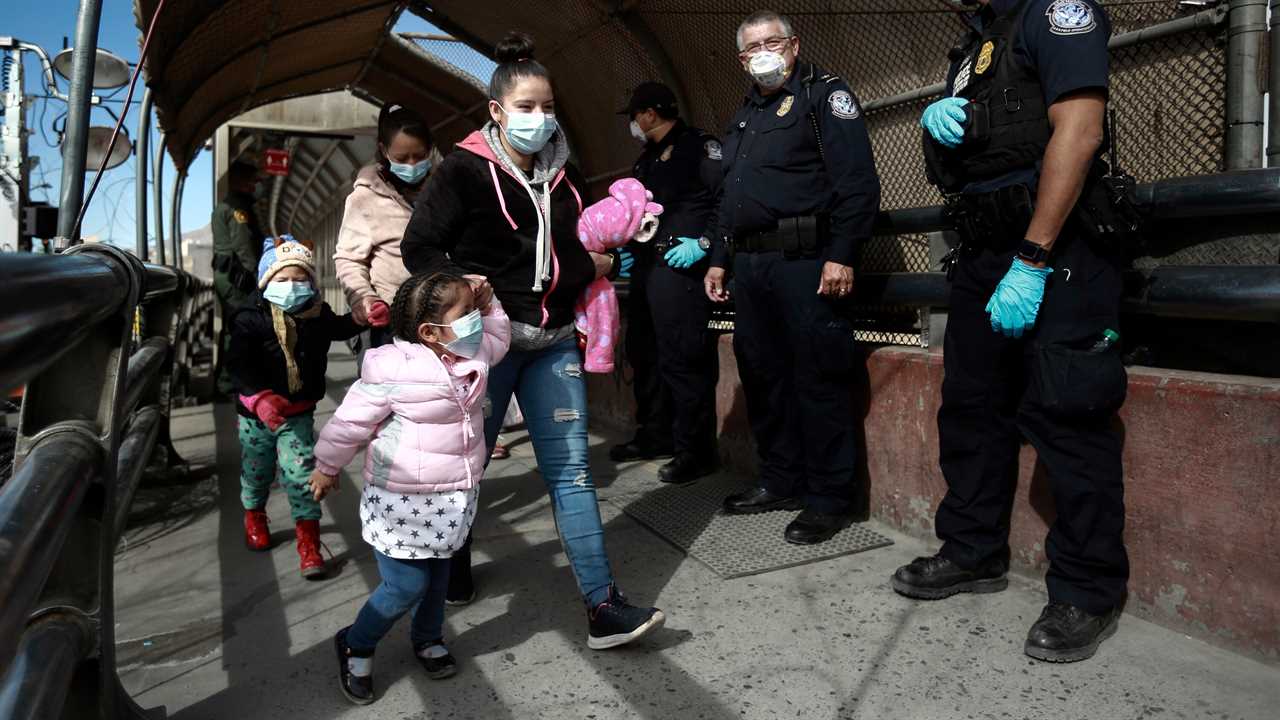
In an attempt to prevent the detention of migrant families for weeks or months at a time, the Biden administration plans to release parents and children within 72 hours of their arrival in the United States, a new policy that already is being carried out along the Texas border.
The plan, confirmed on Thursday by three Homeland Security officials, marks a significant departure from the handling of migrant families under the Trump and Obama administrations, when children often showed symptoms of depression and trauma after spending long periods in custody with their parents.
The decision to avoid lengthy detention of families comes amid a significant spike in the number arriving at the southwestern border in recent months that has posed an early test of President Biden’s pledge to create a more humanitarian approach to immigration.
Former President Donald J. Trump had vowed to end what he called the “catch and release” policies of his predecessors and significantly increased the number of asylum-seekers who were held in detention facilities, rather than being allowed to settle around the country as they waited for the immigration courts to decide whether they could stay.
Under the latest plan, Immigration and Customs Enforcement will hold families only for the time required to schedule court dates, conduct Covid-19 tests and arrange for them to be transferred to shelters, where volunteers and aid workers help schedule their travel to join relatives already in the country.
It was not clear when the plan would be fully rolled out, according to the officials, who spoke under condition of anonymity because they were not authorized to discuss the matter.
About 100 families per day would be processed and released from two existing family residential centers in Texas. Those who test positive for the coronavirus would remain in isolation at a border facility for 10 days.
As of Thursday, several dozen migrants traveling as families were being held at a facility in Karnes City, Texas, and more than 300 at another, in Dilley, Texas. The two detention centers have a combined capacity of 3,200.
Immigrant advocates who were on a recent call with administration officials about the new processing target said they welcomed it, but insisted that families should not be detained for any period of time.
“The changes at the Karnes and Dilley family prisons are, at best, reversible operational changes that reduce the harm of long-term detention, and at worst, a temporary move to quell concern about this controversial immigration policy,” said Andrea Meza, director of family detention services at Raices, a nonprofit organization in Texas that represents immigrants. “Medical and mental health experts unilaterally agree that there is no safe way to detain a child.”
Erica Schommer, a law professor at St. Mary’s University in San Antonio, called the new 72-hour policy a “positive” sign, but cautioned that any detentions of children raised concerns because of research showing that children in such conditions suffered long-term damage.
Latest Updates
- ‘I live a nightmare every day,’ said the owner of an overwhelmed funeral home.
- Connecticut lifts capacity limits on many businesses but keeps mask mandate.
- It’s unclear how easily vaccinated people may spread the virus. Until the answer arrives, scientists urge caution.
“It’s a sign the administration hears the message that people don’t want families detained,” she said. “However, they’re still in detention centers, and it’s my understanding people will not be free to go.”
The family residential centers were erected during the Obama administration to house a surge of Central American families fleeing gang violence and poverty who traveled to the border — often guided by human smugglers — and requested asylum.
Many of them were held for months until an immigration judge heard their asylum cases. But a federal judge in California determined that the prolonged detention was a violation of a settlement decree, known as the Flores agreement, that limited the length of time children could be held in government custody.
Migrant families, expecting a more relaxed border policy, began amassing on the Mexican side even before Mr. Biden took office. His announcement that his administration did not plan to immediately allow large numbers of adult migrants to enter the country did not dissuade them.
To more quickly move families through the detention system and match them with relatives in the United States, the Biden administration is considering deploying Health and Human Services officials to Border Patrol stations, the secretary of homeland security, Alejandro Mayorkas, said this week.
But the administration has also continued to expel many who have entered the country without authorization under a public-health emergency law initially invoked by Mr. Trump. Immigration authorities said they intended to keep such controls in place until there is a system for managing the influx of people at the border.






